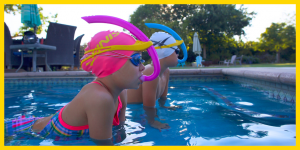Torrey Hart, SwimSwam
January 4, 2020
A week after he opened up in an Instagram post about attempting suicide in late 2018, Olympic gold medalist Tom Shields further discussed his experiences with mental health and his reasons for opening up about his own struggles.
“My time in the sport is coming to an end,” Shields told NBC Sports’ Nick Zaccardi. “As I’ve gotten older, I don’t just want to do nothing with this [sport’s] platform, as small as it is. I had this happen to me, and I feel pretty level-headed about it. I did this to myself, rather. But it didn’t really seem too hard [to post]. I just kind of thought it might help some folks.”
Shields added that on the Wednesday morning of his attempt, he had left swim practice halfway through after having “been awake since Sunday.”
“That was kind of the precipitating moment, but there were a lot of problems going on,” he said, and noted that he “never previously tried to harm himself physically.”
According to NBC, Shields started going to therapy later that day. There, he learned about techniques like eye movement desensitization and reprocessing psychotherapy. He now uses cognitive behavioral therapy worksheets and “other breathing and memory exercises.”
“To get into a state of mind where you feel like you,” Shields said. “I do a lot of that in my head, a couple hundred times a day, constantly checking in. It’s very similar to Hindu meditation classes I took or Christian prayer.”
He added that he feels he did not “maximize” his performance at the 2016 Olympics, and that that is a “regret.”
“All of my best training has been since 2015 Worlds, for sure, so it’s been a frustrating process, but it’s an interesting thought experiment,” Shields said. He also told NBC that he watches videos of his 2014 butterfly sweep at U.S. Nationals twice a year.
“I see a lot more freedom in my swimming [then],” he said. “You can see that I’m not worried about much.”
In his Instagram post, in addition to his wife Gianna, Shields called out longtime coach Dave Durden for “rescuing” him.
“He basically parented me through college,” Shields said of Durden. “I don’t think I ever could have swam successfully under any other coach just because I don’t think anyone else could have dealt with me, to be honest.”
Shields tagged former Cal teammate Sean Mahoney, in whom Shields confided two weeks after his attempt, in his Instagram post. Mahoney spoke with NBC as well, saying he thinks it’s important that people have someone they can talk to.
“It’s definitely a subject that I’m pretty touchy on and empathetic to,” Mahoney said. “Tom and I were already close, and knowing that something this serious was going on with him just made a stronger reason to do the dinners, to just be a friend to this guy. One of the hardest things for someone going through mental health problems is people want to treat you differently, and they’re not sure how to act. Having someone to listen to — and listens to you — having that outlet to talk to, someone who is treating you the same before and will treat you the same after, at least in my experience from what I’ve seen, is very helpful
In the end, Shields said he hopes his post will help make it easier for people to ask for help when they need it.
“This is going to help some people, you hope,” he said. “More than anything, I’d like to shift the conversation. [Suicide] attempts are always going to be a big deal, but I hope that we get to the point where it’s not a big deal to just ask for help.”
If you or someone you know has had suicidal thoughts or exhibited any of the warning signs, please call the National Suicide Prevention Lifeline at 1-800-273-8255 or visit their website here (suicidepreventionlifeline.org) if you’re in the US.
You can find a list of international hotlines here.
Read the original article here
Recent Articles
Dylan Carter
Chelsea Hodges
Lorenzo Zazzeri

Introducing the Stability Snorkel Jr
Share on Social Media


